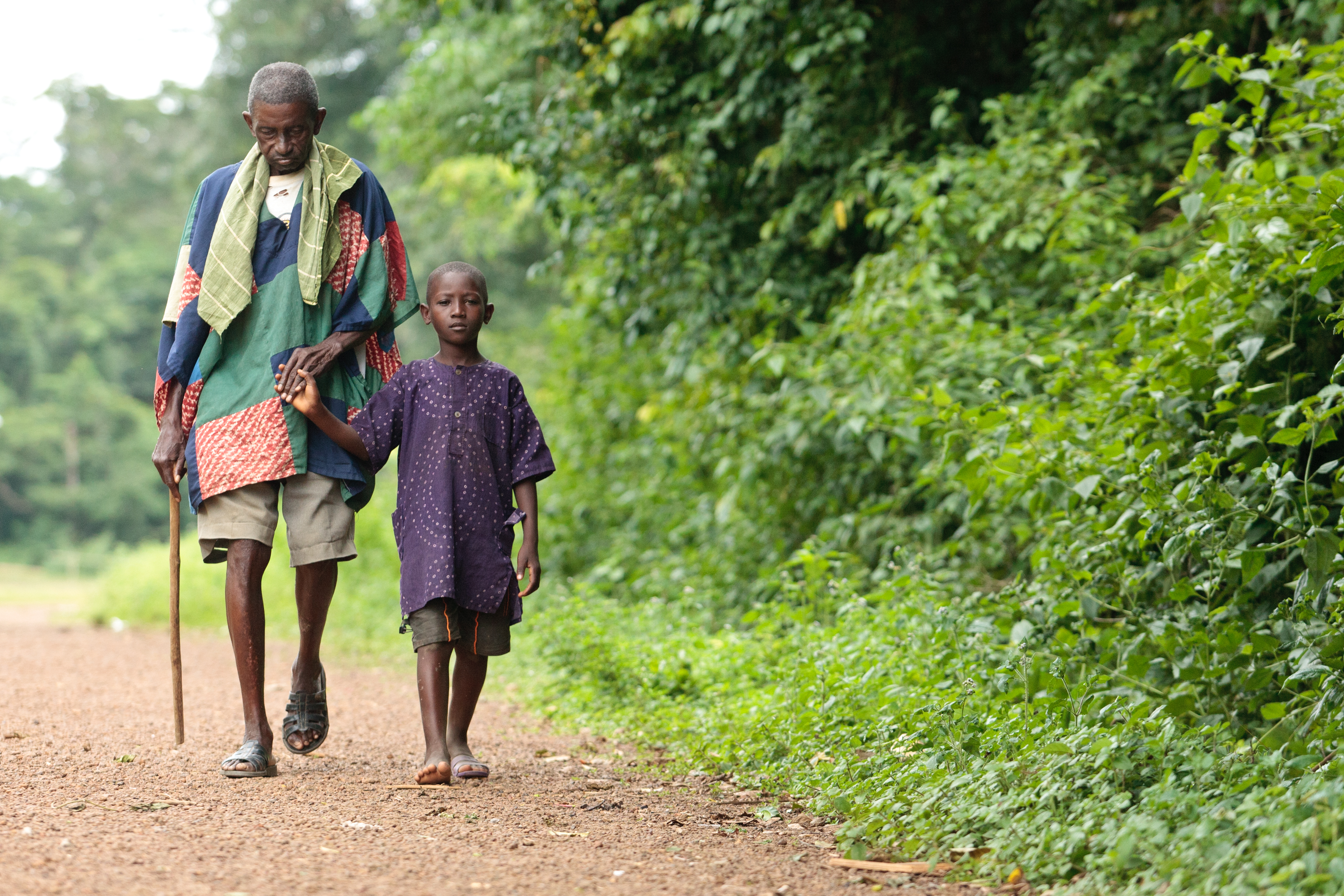A BEGGAR’S SON

I undid my tie and left it hanging from my collar. For the umpteenth time, I tugged at the air con button, hoping that by some miracle it comes on. Because it was usual for Sango to greet me with a seemingly endless queue of static cars in an unapologetic traffic jam, and only the comfort of the AC succored me.
I sighed, unwind the windscreens and tried to relax, when I heard a scream of panic just beside me. “You better watch it!” hollered a concerned onlooker to a pedestrian, who in meandering through the cars, collided with a commercial cyclist, who sped off, notwithstanding.
“Fool, your life will never be good!” cursed the infuriated pedestrian.
This would be my first exposure to the coals under the tongue of an average Ibadan resident. For it was with screens completely wound up and my soul deeply immersed in my favorite music that I plied the Mokola Roundabout en-route Dugbe, for six whole months.
I had no contact whatsoever with the beggars who lived under the Ajimobi overhead bridge. Even though I have overheard my colleagues talk about the smell of deformity, diffusing from the belly of Sabo to Mokola and how Sango tells stories of disabled parents, deploying their children to beg, I often drove passed, too blinded by gloom to see any of those.
Today as I stared out through the window, my eyes fed my mind with such thoughts that melted my heart. Haggard beggars perched on skate-like boards, hands tucked into a pair of slippers as they wheeled themselves. Each had his malleable limbs crossed and tucked away in the opposite elbow yet they seemed happy. I wondered how they managed a smile.
“Uncle” I heard a voice call out to me and turned.
And there stood by my car, a boy, one palm sitting beggarly atop the other, yet grasping a bowl firmly. He didn’t have to say much. His eyes were as flickering flames pleading with the winds not to put out its light. On the boy’s shoulder rested a blind man’s left hand, whose shoulder blades shot out through his flimsy jalamia. He was muttering some words- mumbling what seemed like a prayer in Arabic.
I saw the semblance in the two; only that my mind would not let me call the child, the man’s son for he was but eyes to his blind father. Another look at the two, and I remembered one of Jesus’ miracles (John 9:6) and made my inference: this boy’s conception and birth was the mud and spittle that nature rubbed on the blind man’s eyes!
And then “kiikikikprakprakpa”, my mind replayed the familiar sound of that silent night when dad trailed me to a theatre, ripped my costumes apart and delivered my remains to his chambers. From that night and throughout my varsity days and months spent in law school, my dreams wandered in the wilderness of wishes, until it got trapped by fate. Every single day, I fear that in becoming a man, I might live till old age, yet die without living one day of my own life!
“Uncle” the boy called again, with a voice that dripped with an irresistible innocence.
Slowly, I turned, looked at his face, littered with eczema, and his head- a congress of ringworms, emboldened by whitish circular patches. Unable to bear another second of the stench exuding from his tattered clothes, coupled with the disgusting sight of greenish mucus hanging from his nostrils, I dropped a note in his bowl.
Some kids are like a fine tune trapped in the throat of an unfortunate flute (the one that finds itself in a place), there is neither a willing mouth nor skillful fingers to play it.
Hey @ebo-quills, nice piece! Thanks for sharing. I enjoyed your writing. Keep up the good work!
Thank you very much exxodus!
The picture you painted conveys a feeling of complete hopelessness. Words are inadequate in expressing the frustration felt by the boy and his father. I wonder...do they still feel hope? Well done, @ebo-quills.
This is a work of fiction but what is obtainable in real life doesn't even give the slightest hope to blind beggar and his son. Except hope in this context is an extra naira note in his bowl.
Thanks willymac for reading my story.